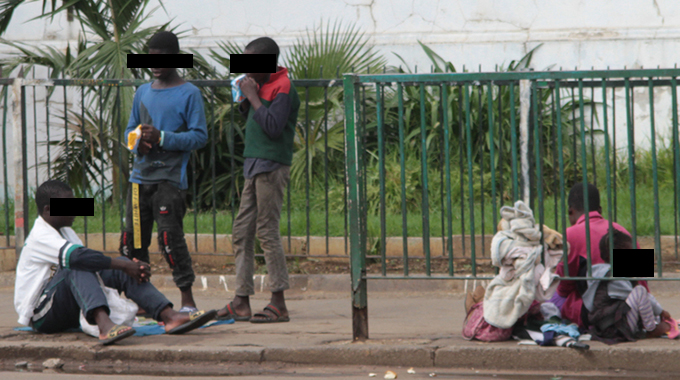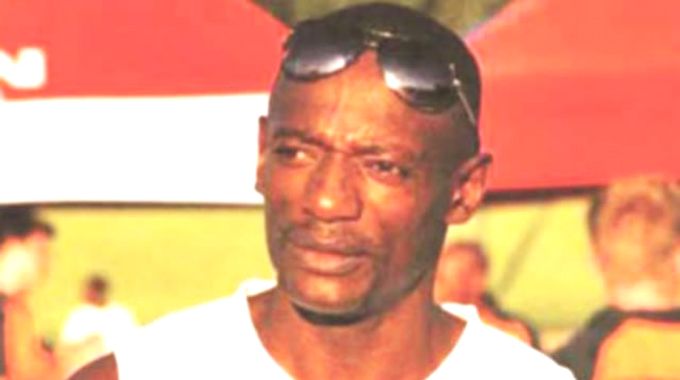Beggars: The new street marshals

Beaven Dhliwayo Features Writer
In the busy Harare central business district (CBD), it is now easy to walk past the homeless, to disregard the young man lying on the street early in the morning, or ignore a teenage girl standing at an intersection holding a handwritten placard with a plea for help.
It has also become even harder to look away when you’ve seen their eyes. Although they appear to be resilient by merely looking at them, they are also suicidal, engage in unprotected sex and other high-risk sexual behaviours as a means for survival.
Some have become criminals because of a number of reasons, chief among them being high rates of substance abuse.
Now, some of them have become beggars who choose or demand that you give them something as little as a dollar.
My interest in writing about such individuals stems partly from my upbringing. Having been raised by a single mother, I never had to be someone who could dictate what I needed in life. It was hard to survive in the dusty streets of Chipinge’s Gaza Township during the 1990s since mummy was not gainfully employed.
Nevertheless, we survived without choosing to be dependent on others unlike these days where begging at street corners has become more of a trade. My sister, Nyaradzo was the one nursing me when mama was in neighbouring South Africa trying to butter our bread. She did well, so did mummy.
From selling Zimbabwe’s traditional foods like groundnuts, round nuts, madora (mopane worms), and dried vegetables among other cuisines, to doing household chores for affluent families in Garankuwa, a township in Pretoria — we were never short of anything. May her soul rest in eternal peace!
The essence is to look past lines drawn by hard living or the still-soft skin of someone trying to break the cycle of dependency and abuse. However, it is a different story altogether for Harare street dwellers.
In Harare, street urchins have invaded almost every corner. They seem to respect each other’s territory. I did a couple of rounds in central Harare, to have an appreciation of the crop of street dwellers the city has.
I meet several individuals and groups on my way to and from work and also during my spare time. Just a look in their eyes tells tales of heartache and hope. Their eyes hint at lost potential or offer a flicker of hope. Some are melancholic, some placid.
Others distressed or masking troubles. Some are earnest and gentle; others tough and uneasy.
Questions I asked myself include: Why did they end up here? How do they get by on so little? What do they need to get back on their feet?
Dear gentle reader, we can agree that these questions don’t always have easy answers. Solutions are not always available.
The extent of someone’s past troubles can be impossible to know. They have different ways of soliciting for money or food and each have mastered their skill.
Taking alms by hook or crook
Across from the elegant Trek Service Station, along Samora Machel Avenue, a popular figure identified as Gede reclined on his side, resting on an elbow on a concrete barricade along Leopold Takawira Street a stone’s throw from the Harare Gardens.
Rather than stand out in contrast to busy people hustling by, or commuters heading to Westgate and Good Hope via the Avenues, he fits in as one of the many homeless people who idly spend their days around the area.
Gede’s gaze is as empty as the details he offers about life.
He says he has been on the streets for over a decade and sometimes he visits his family in Mutare. He speaks with a drunken slur while a cigarette is propped behind his right ear.
“I survive on begging from people and I now have my regular guys who give me money and food almost on a daily basis,” he says with a toothless smile.
“Sometimes I look after people’s cars and wash them for a fee, and am doing well. I’m not fighting, like I used to,” he says.
“When I was young, before I started operating in this area, I used to fight a lot.”
Now he is trying to beat drugs and alcohol. Gede admits that in future he would like a place to stay and some money, but for now he is comfortable.
“I’m no longer the violent guy about town,” he reveals. “I like keeping my peace.”
There are many like him. But there is also another crop of boys at the footbridge near Town House. They have given women and girls a torrid time as they demand, not ask for money.
It is around 6pm on our way home with my fellow workmate, of course discussing the latest news in the courts, business and sports among other town gossips.
A young boy, supposedly six or seven-years-old comes from the middle of nowhere and grabs a light-skinned lady on her left leg, and starts crying, asking for money. It is a spectacular scene. She tries to dislodge the boy, but he clings on, not letting go.
This goes on for almost two minutes or so, until she gives in; opens her purse and pulls out a $2 note, much to the glee of the young lad, who immediately releases her.
There seems to be coordination among this crop. Why target the fairer sex?
Traffic lights controllers
These are found at all intersections, especially when traffic lights are not functioning. What they are doing is noble because it makes them feel better to offer something in exchange for a hand-out.
“It’s hard pan-handling and taking things from people,” says young Takunda.
“Together with my three friends we like to control traffic, especially when there is no power to calm the confusion which normally results in congestion and sometimes accidents. “We all used to beg, but we normally meet the same people who are now fed up, and see us as grown-ups who can use their hands to put food on the table.”
The group of four young guys controls traffic at the intersection of Bishop Gaul and Samora Machel avenues. Takunda says motorists give them money while some give clothes and food. Indians who stay in Belvedere, he reveals, are their favourite as they tip with US dollars and good food.
Beggars who are choosers
These are subtly part of the downtown economy. They understand the nuances and changes as they come. Well synced with the developments, they decide who to extend hands to when begging.
It is as if they have someone they cash their earnings to. Now they are turning down 50 cent coins, saying they are no longer in use.
Wig snatchers
Expensive wigs have seemingly become quick money in Harare’s central business district. It is alleged that those running salons have a well-knit syndicate with street urchins who steal the wigs for a fee, which is usually a fraction of their actual cost.
Targeted are hairs that come from Brazil, India, Peru and Malaysia, and they range from US$300 to US$1 000.
Women and girls be warned.
Recyclers
Thomas sleeps in the First Street Mall, just behind the police base, and a place which has become one of the most wretched homeless havens in Harare.
The sidewalk outside ZB Bank reeks of urine and drug addicts sprawl nearby, one in the apparent throes of a high with her arms spread wide and head turned towards the heavens.
Thomas says he used to live with his aunt in Epworth, but started having problems and decided to move to the CBD.
One of those problems may have been drug use.
He says he started using drugs as a 12-year-old at school where he hanged around with older boys breaking all the rules.
“Every time there’s something good in my life,” he says, “something happens.”
He collects cardboard boxes, plastic bottles and empty cans for sale. Thomas becomes emotional talking about his baby sister he hasn’t spoken to for the past six years.
He admits that he has relatives who live in and outside Harare, but he doesn’t want to visit them. “I’m here on my own,” he boasts. “I like to be around by myself and the new family I met in the streets.”
“We make a little from recycling, but it is better than begging or stealing from people.”
Many say that these people could have a different kind of life if they choose — get a job and have stability. But for the street dwellers, that option is out of the question after years of seclusion from other people.
Fellow street occupiers have become their family.







Comments